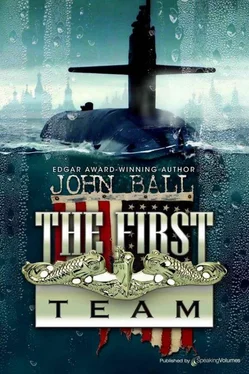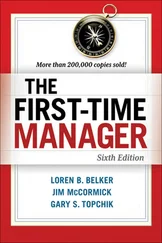Джон Болл - The First Team
Здесь есть возможность читать онлайн «Джон Болл - The First Team» весь текст электронной книги совершенно бесплатно (целиком полную версию без сокращений). В некоторых случаях можно слушать аудио, скачать через торрент в формате fb2 и присутствует краткое содержание. Год выпуска: 2013, Жанр: Триллер, на английском языке. Описание произведения, (предисловие) а так же отзывы посетителей доступны на портале библиотеки ЛибКат.
- Название:The First Team
- Автор:
- Жанр:
- Год:2013
- ISBN:нет данных
- Рейтинг книги:5 / 5. Голосов: 1
-
Избранное:Добавить в избранное
- Отзывы:
-
Ваша оценка:
- 100
- 1
- 2
- 3
- 4
- 5
The First Team: краткое содержание, описание и аннотация
Предлагаем к чтению аннотацию, описание, краткое содержание или предисловие (зависит от того, что написал сам автор книги «The First Team»). Если вы не нашли необходимую информацию о книге — напишите в комментариях, мы постараемся отыскать её.
Student protesters are being slaughtered in the Midwest.
The Jewish pogroms have begun.
You are now living in Soviet — occupied America!
One nuclear submarine and a handful of determined patriots against the combined might of Russia and Soviet-occupied America… The Most Explosive and Gripping “What If” Novel of Our Time!
First published January 1971
The First Team — читать онлайн бесплатно полную книгу (весь текст) целиком
Ниже представлен текст книги, разбитый по страницам. Система сохранения места последней прочитанной страницы, позволяет с удобством читать онлайн бесплатно книгу «The First Team», без необходимости каждый раз заново искать на чём Вы остановились. Поставьте закладку, и сможете в любой момент перейти на страницу, на которой закончили чтение.
Интервал:
Закладка:
It had been an explosive occasion, there had been no denying that, and overnight Orberg recordings had leaped to the head of the charts. An album cover, which had been prepared in advance to show him as he had appeared in the formal old New York recital hall, had been put on sale over the loud protests of many PTA’s, church groups, and so-called citizens’ committees. It had been permitted nevertheless in most of the larger cities. Some dealers had been hesitant to display it, but they all had to carry it, and it set a new record for reaching two million in sales in an almost unbelievably short time.
It was at that point that Marc Orberg’s draft board had reclassified him I-A. They had done so reluctantly because the Army very definitely didn’t want him, but too many voices had been demanding to know why he was escaping service when so many others were being compelled to go. Orberg had been perfectly aware of his position and knew almost without question that he would have been refused on whatever grounds might have been convenient. But he had exactly what he wanted and he capitalized on it with outstanding ingenuity.
On the day that he had formally reported and refused induction, it had taken the police more than three hours to clear the area and make the arrest that could not be avoided. Through his attorneys Orberg had challenged the whole structure of the draft mechanism on the basis that it was discriminatory and forced those who were inducted to enter a world of corruption and expediency. The case had been before the appeals court when a military scandal, small but sharply pointed had erupted on the front pages of all but the farthest right newspapers. That had given new meaning to Orberg's argument, and despite his well-known politics, a few editorial writers had dared to support him.
One of them reversed himself rather dramatically on the day after the decision was handed down:
Because of our precious traditions of full freedom of religion and of conscience we have been moving steadily toward less oppression of unpopular points of view, and a greater constitutional equality for all men.
But in the exercise and protection of our hard-won freedoms, it is possible for us to forget from time to time the discipline which our forefathers imposed upon themselves in order to win for us the things which we enjoy today.
The decision just handed down from the federal bench, that the entire structure of the military draft, as if is now organized, is unconstitutional, must be received by some of us as a blow. It is now no longer a matter of personal liberty, but rather a question of how long and how far we will choose to go in lowering our defenses until, in terms of effective performance, they will cease to exist.
The editorial had been read by some people, but it had passed little noticed in the barrage of reports about celebrations in the streets by young people in every major city. Many of the demonstrations had been relatively orderly, others had gotten far out of hand, and the one in San Francisco, at which Marc Orberg had appeared personally, had been a disaster. The governor had been forced to call in troops and the aftermath of the wild affair had gone on for another three days.
Eventually the draft mechanism had been reestablished, but it had taken time and the watered-down version which had finally been enacted into law provided so many loopholes that only the semi-literate sons of the notably poor had needed to concern themselves that they might be required to serve their country. When the pay and other inducements for military service had been upgraded an increased number of volunteers had appeared, but the Navy had still been forced to report that it had only fifty-two per cent of it's basically required manpower. The Marine Corps had been down to forty-six per cent while the Army had gone on record only as requiring “many more men who are ambitious to learn trade and technical skills.”
The result of all of this had been, in part, to make Orberg a national hero to a good segment of the fifteen-to-twenty-five age bracket. He had stopped singing then except for infrequent recording sessions and had turned instead to becoming one of the heads of the protest movement.
That had been one factor, and whatever the right and justice of it, it had seriously weakened the whole military establishment, both in numbers and in prestige. The very words “military establishment” had become an anathema to many people. After the Orberg decision the antimilitary camp had become intensely active; it had sponsored protest movements, speeches, demonstrations, and appeals. By sheer force of rhetoric it had created the illusion that the great majority of the population was with it until a significant number of congressmen began to believe that it might be true. Shortly thereafter, the armed forces had been substantially cut back. The time had seemed right; there had been loud calls for economy and the Department of Defense had had no visible role to play other than to maintain a posture of readiness. Furthermore, the international situation had been giving every appearance of simmering down during the several preceding months until the unexpected challenge had come with lightning speed and total surprise. Obviously those on the other side had been reading von Clausewitz.
Hewlitt remembered next Senator Solomon Fitzhugh, the Mid-westerner who had successfully parlayed his biblical name and its connotations of great wisdom into four successive terms in the United States Senate and eventually the chairmanship of one of its most powerful committees. The Fitzhugh committee had created a private hell for the State Department through its relentless probing into certain secret commitments which had been entered into with the President’s full knowledge and approval, but which had not been made public for well-established reasons. The senator himself had been vastly irritated that he had not been made privy to all that was going on and he had sought to take revenge through the power of his office. That had been the springboard which had launched some notably heated testimony.
One of the high points of the committee hearings had been the appearance of Admiral Barney Haymarket. The former Chief of Naval Operations had been in retirement for more than two years when he had been summoned once more to come back and be heard on the hill. In the nourishing light of publicity Fitzhugh had pounded away and the admiral had parried him with the expert technique of one who had faced congressional committees many times before. The admiral had maintained that since he was no longer part of the military establishment, the only information he was qualified to give was largely of a historical nature. Fitzhugh had refused to buy that, of course, and the battle had been joined.
“Admiral Haymarket, I’m going to ask you a point-blank question,” Fitzhugh had said when the afternoon had been well advanced. “Isn’t it true that during the time you were in the Navy, while you were occupying a position of very high responsibility, you had knowledge of certain secret international agreements which could, under some circumstances, bear on the posture of our fighting ships at sea?”
“To some degree, yes.”
“Now we’re getting somewhere. All right, admiral, now let’s have a closer look at some of these agreements. Do we have any still secret naval commitments, never mind what they are, or what their terms call for, in Southeast Asia? Wait a minute, that’s too broad for what I want to get at. Let me put it this way: have we at present any under-the-table naval agreements with the Republic of China? I mean Taiwan.”
The admiral had taken his time in answering. “There are some very clear mutual commitments which have been approved by the Congress. I have no knowledge of any recent additions, classified or otherwise, which may have been entered into since my retirement.”
Читать дальшеИнтервал:
Закладка:
Похожие книги на «The First Team»
Представляем Вашему вниманию похожие книги на «The First Team» списком для выбора. Мы отобрали схожую по названию и смыслу литературу в надежде предоставить читателям больше вариантов отыскать новые, интересные, ещё непрочитанные произведения.
Обсуждение, отзывы о книге «The First Team» и просто собственные мнения читателей. Оставьте ваши комментарии, напишите, что Вы думаете о произведении, его смысле или главных героях. Укажите что конкретно понравилось, а что нет, и почему Вы так считаете.












